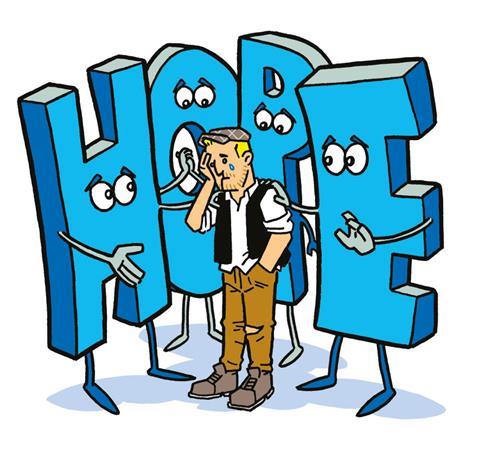
‘Hope deals the hardest blows’.
These lyrics are from one of my favourite artists, Foy Vance. The phrase has rung so true in my experience of growing up as a full-blown, flag-waving charismatic.
I remember attending ‘healing services’ as a new Christian and seeing miracles pretty much every single time. Within our own congregation, a man was healed from the tremendous neurological impact of a stroke. Another member of our worship team, who was born deaf in one ear, had his hearing restored.
But for every miraculous healing, there was a parent who had just lost a child to cancer. Or a couple who had approached the altar for prayer at every meeting for ten years and still didn’t have the baby they longed for.
For those who are still waiting for their breakthrough, or who feel let down by God, every praise report feels like a twist of the knife.
In moments like that I always think of John the Baptist, imprisoned – and presumably racked with doubt – asking: “Are you the one who is to come, or should we expect someone else?” (Luke 7:20).
Jesus replies: “the blind receive their sight, the lame walk, lepers are cleansed, and the deaf hear, the dead are raised up, the poor have good news preached to them. And blessed is the one who is not offended by me.” (v22-23, ESV).
It is so offensive when some people prosper while others languish. No wonder there is a blessing for overcoming that! I wish I could crack the code and break open the algorithm that determines how and why miracles are dispersed. But I can’t. And neither can you.

Instead, I have to work out how to navigate leading worship in a world of simultaneous miracles and disappointments. There’s a popular new worship song that declares “I’ve seen cancer disappear / I’ve seen metal plates disolve…I’ve seen real life resurrection / I’ve seen mental health restored.”
I don’t think it’s wrong to sing songs of confidence in who God is and what he has done. But I do think we have to be sensitive to the impact of our bold declarations on those with a different story.
I’m an optimist and a believer, and I’ll continue to pray bold prayers and sing songs of the miraculous hope we have in Jesus. I have testimonies of his goodness that I will share with passion. But I will also be careful of the context when I do these things. Who is listening? Is this more likely to raise painful questions than the faith levels of those in the room?
I’m not sure how to fully resolve this problem. Christians are, after all, by definition caught in the middle of a perplexing paradox: believers in a good news gospel, living in a bad news world. Our faith is always a collision of ultimate triumph and present pain.
But we can certainly be aware of balance. If we only sing of victory, our worship can be trite and divorced from reality. But if we only sing of lament, we miss out on the bright hope and joy of following Jesus.
Let us worship with confidence and awareness, with pastoral sensitivity and Pentecostal vivacity. Because hope can deal the hardest blows, but it can also be our greatest comfort.





































